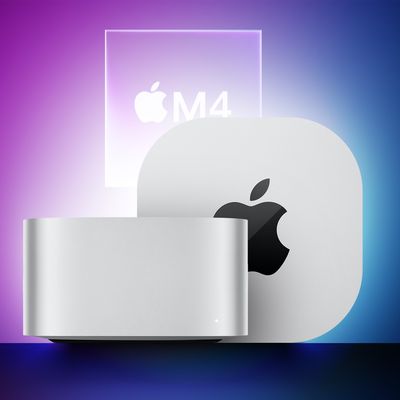iOS 18 Adds More Control Over Adaptive Audio on AirPods Pro 2
Apple's second-generation AirPods Pro have an Adaptive Audio feature that includes Adaptive Noise Control, Personalized Volume, and Conversation Awareness, which are all features that adjust sound and Active Noise Cancellation in response to the environment around you.

Right now, Adaptive Audio is an all or nothing setting, but that's set to change in iOS 18. Apple added a "Customize Adaptive Audio" menu that lets you adjust the setting to allow for more or less noise.
When the AirPods Pro 2 with the latest beta firmware are connected to an iPhone running iOS 18, you can open up the AirPods section of the Settings app to see a new Adaptive Audio section.
Tapping into it presents a slider bar where you can adjust Adaptive Audio for Less Noise or More Noise, impacting the Adaptive Audio settings. The feature will mostly apply to Adaptive Noise Control, a feature that blends Transparency and Active Noise Cancellation. It is designed to tweak the level of noise control based on changing conditions in the environment, so being able to set it to allow for more noise or less noise will come in handy.
The setting will also impact Personalized Volume, an option that adjusts the volume of the AirPods Pro 2 based on your personal volume preferences and environmental conditions.
These settings will be widely available to AirPods Pro 2 owners when iOS 18 launches in the fall. The earbuds will also be able to be adjusted using iPadOS 18 and macOS Sequoia.
Popular Stories
Leaker Sonny Dickson is back today with a new dummy unit image showing all four iPhone 16 Pro color variants, including the rose gold or "bronze" unit that replaces Blue Titanium in the existing iPhone 15 Pro models. The iPhone 16 Pro models are expected to come in black, white or silver, gray or "Natural Titanium," and a rose or rose gold color replacing Blue Titanium, according to Apple...
Multiple rumors have suggested that the iPhone 16 models are going to have an all-new button that's designed to make it easier to capture photos when the devices are held in landscape mode. Apple calls the button the Capture Button internally, and it is going to be one of the most advanced buttons that's been introduced to date with support for multiple gestures and the ability to respond to ...
Apple typically releases its new iPhone series in the fall, and a possible September 10 announcement date has been floated this year, which means we are just one month away from the launch of the iPhone 16. Like the iPhone 15 series, this year's lineup is expected to stick with four models – iPhone 16, iPhone 16 Plus, iPhone 16 Pro, and iPhone 16 Pro Max – although there are plenty of design...
Apple's iPhone 16 series is expected to debut in September 2024. This release follows Apple's trend of introducing new iPhone models annually in the fall. While the exact date has yet to be officially confirmed, the day of Tuesday, September 10 has been rumored as a possible announcement date, and September has traditionally been the month when Apple unveils its latest smartphone innovations. ...
Apple is moving forward with its project to develop a tabletop robotic device, according to Bloomberg's Mark Gurman. Subscribe to the MacRumors YouTube channel for more videos. The device would feature a large iPad-like display mounted on a "thin robotic arm" that would allow the display to tilt and up and down and rotate a full 360º, and it would serve as a "smart home command center," a...
It's almost September, but Apple still has multiple new product launches planned for 2024. New iPhone 16 models and Apple Watches are coming in September, and we're also going to get at least three Mac updates with M4 chips this year, according to rumors. Here's what's on the horizon. MacBook Pro Apple plans to refresh both the 14-inch and 16-inch MacBook Pro models, adding M4 chips. The ...
T-Mobile was fined $60 million by the Committee on Foreign Investment in the US (CFIUS) for negligence surrounding data breaches, reports Reuters. CFIUS penalized T-Mobile for failing to prevent or disclose unauthorized access to sensitive customer data. When T-Mobile merged with Sprint, it signed a national security agreement with CFIUS, which is what led to the fine earlier this year....





















